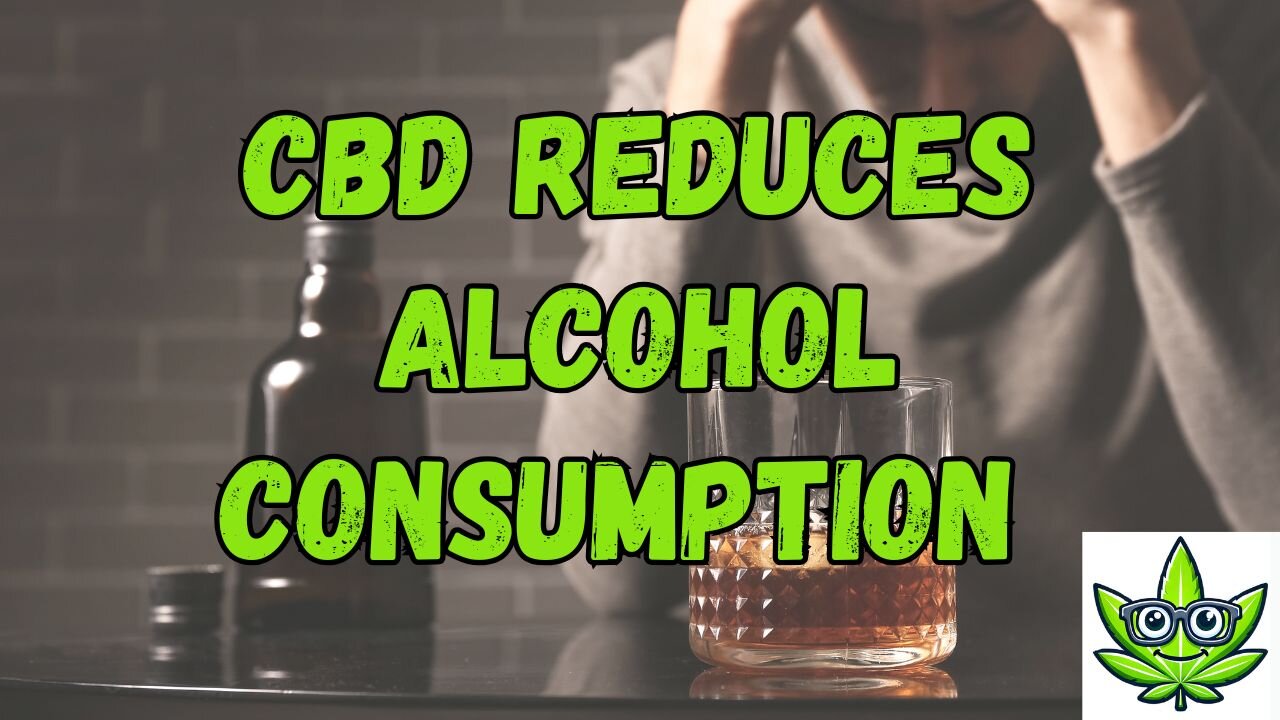Premium Only Content

CBD Reduces Drinking
Check out mycannapro.com for the latest information and education on cannabis!
CBD May Help Reduce Binge Drinking, New Study Finds
As rates of alcohol-related health issues continue to climb, researchers are urgently seeking safer, more effective tools to address the problem. A promising new study published in the British Journal of Pharmacology suggests that cannabidiol (CBD), a non-intoxicating compound from the cannabis plant, may be one of those tools. Researchers from the University of Sydney found that CBD significantly reduced both alcohol consumption and blood alcohol levels in mice, without sedating them or impairing their activity.
The research used a well-established animal model that mimics binge drinking behavior. After administering CBD, mice consistently drank less alcohol—and their blood alcohol content dropped accordingly. These effects were dose-dependent and persisted over multiple weeks of treatment. Unlike many medications that lose effectiveness over time, CBD maintained its benefits throughout the study, making it a strong candidate for long-term support in alcohol use disorder (AUD).
The mechanism behind CBD’s action is particularly intriguing. Scientists originally suspected that known targets like serotonin or PPAR receptors might be responsible. However, the study pointed to a different pathway: CBD appears to reduce alcohol intake by acting on the neuropeptide S receptor (NPSR), a system involved in stress and arousal. Even more promising, when CBD was combined with an NPSR-blocking agent, the effect was even stronger—suggesting potential for future therapeutic synergy.
These findings build on a growing body of evidence showing that cannabis—and CBD in particular—may help reduce harmful drinking in humans. Other studies have found that CBD reduces alcohol cravings, while federally funded research shows that cannabis users often consume fewer alcoholic drinks and report less desire to drink. With alcohol remaining one of the leading causes of preventable death, the possibility of a natural, plant-derived compound helping people cut back is worth serious attention.
Another cannabis compound, the terpene beta-caryophyllene, is also gaining traction for its anti-addictive properties. By activating the CB2 receptor, BCP may reduce cravings for alcohol, nicotine, and opioids, all while reducing anxiety and supporting the body’s reward pathways. Together, CBD and BCP represent a unique plant-based toolkit for helping people take control of their health in a more holistic way.
As cannabis science continues to evolve, studies like this one are shifting the conversation. Instead of seeing cannabis only as an alternative to alcohol, we’re beginning to understand its potential as a therapeutic ally in reducing alcohol-related harm. For those looking for safer, natural ways to support recovery and wellness, cannabinoids may offer real hope—backed not just by stories, but by science.
-
 LIVE
LIVE
Lofi Girl
2 years agoSynthwave Radio 🌌 - beats to chill/game to
172 watching -
 3:07:24
3:07:24
FreshandFit
8 hours agoPrivileged Nigerian Thinks Women Created Everything: HEATED DEBATE
141K74 -
 5:57:27
5:57:27
SpartakusLIVE
9 hours agoNEW Update - BROKEN Attachment || Viewers REJOICE at the long-awaited Return of Their KING
74.9K -
 2:06:31
2:06:31
TimcastIRL
9 hours agoTrump To Deploy National Guard To Portland, Antifa Has Been WIPED OUT | Timcast IRL
189K152 -
 2:30:00
2:30:00
Laura Loomer
10 hours agoEP142: Loomer Prompts Calls For FBI To Investigate Palestinian Youth Movement
49.8K19 -
 1:26:34
1:26:34
Man in America
12 hours agoExposing the Cover-Up That Could Collapse Big Medicine: Parasites
56.3K23 -
 4:53:00
4:53:00
CHiLi XDD
8 hours agoTekken Fight Night
30K1 -
 9:25:57
9:25:57
ItsLancOfficial
13 hours agoFREAKY FRIDAY-GETTING FRIED-WELP! #TOTS
30.1K3 -
 1:09:11
1:09:11
Sarah Westall
9 hours agoRead the Signs: Are We Already Operating in a New Financial System? w/ Andy Schectman
42K8 -
 1:32:53
1:32:53
Flyover Conservatives
13 hours agoRicky Schroder Exposes How Hollywood Planted Him as a Child Star | FOC Show
54.8K12